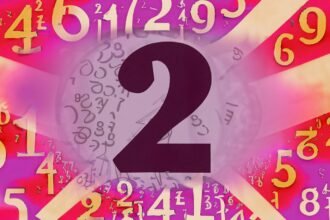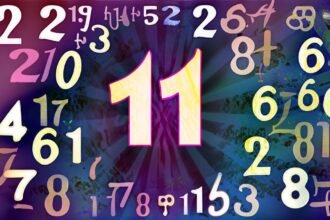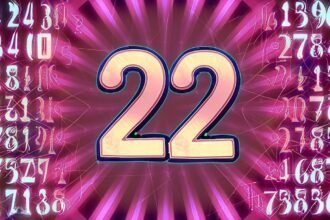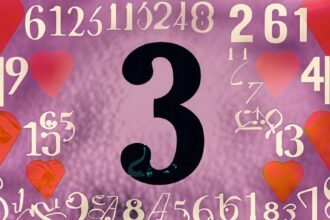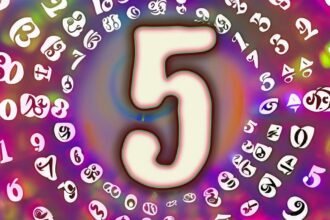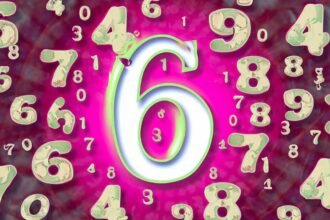Numbers shape more than calendars, clocks, or measurements. In numerology, your birth date and name encode vibrating energies that may reflect in your physical, mental, and emotional health.
- What Numerology Is, and Why It May Matter for Your Health
- Historical Roots, With Scholarly Caution
- Pythagorean & Greek Traditions: Harmony, Number, Symbolism
- Traditions Attributed to Babylon & Later “Chaldean” Numerology
- Ayurveda & Traditional Indian Frameworks
- Mapping Numbers to Well‑Being: What Traditions Suggest
- Practical Guide: Using Numerology for Better Well‑Being
- What the Scientific Evidence Supports, and Where Gaps Remain
- What Numerology Doesn’t Do, Important Clarifications
- Case Sketch: A Numerology‑Inspired Healing Path
- How to Use Numerology Responsibly
- Final Thoughts
- Further Reading & Resources
When you align your everyday lifestyle with those energies, it may help reduce stress, improve sleep, and boost emotional balance.
Over time working with clients, I’ve noticed recurring patterns. People with high‑drive number profiles often burn out. Those with sensitive/emotional numbers often absorb others’ moods.
Once we map their numerological profile, experiment with routines aligned to their energy, the shift is noticeable: deeper rest, calmer moods, better resilience under stress.
Numerology is a tool, a lens for self‑awareness. Not a stand‑in for medical care. Always consult health professionals for diagnosis or treatment.
But used reflectively, numerology can spotlight patterns modern tests don’t always catch, emotional overload, energy dips, misaligned lifestyle rhythms.
Below we explore numerology’s historical roots (with caveats), what different numbers are thought to imply for well‑being, how to use this insight practically, and what the scientific evidence does, and doesn’t, support.
What Numerology Is, and Why It May Matter for Your Health
In essence, numerology studies how particular numbers (derived from your date of birth, your name, etc.) are thought to carry certain qualities or vibrations. These numbers then map to patterns of temperament, energy, stress response, and emotional style.
Think of it like this: you may be most in tune when your daily life aligns with what those numbers favor. When it doesn’t, energy leaks happen, fatigue, anxiety, emotional swings, sleep trouble.
Aligning your routines, rest periods, emotional practices, and diet can help you feel steadier, more vital.
Knowing your numerology isn’t about predicting fate. It’s about increasing awareness, seeing when you’re off‑tempo, and giving yourself what your natural rhythm requests.
Historical Roots, With Scholarly Caution
We want to see where these ideas come from, not to assert certainties, but to understand context.
Pythagorean & Greek Traditions: Harmony, Number, Symbolism
Ancient Greek philosophy, especially the Pythagoreans and their successors, placed number and harmony at the center of how the cosmos was understood. They believed music intervals corresponded to simple numerical ratios, that numerical proportion underlies geometry and cosmic structure.
However, specific claims about what Pythagoras himself taught are often uncertain. Much post‑Pythagorean tradition (Neopythagoreanism) layered mythic or symbolic material onto earlier ideas.
The idea that specific numbers dictate health or personality lacks strong ancient documentary evidence.
Traditions Attributed to Babylon & Later “Chaldean” Numerology
Some modern numerology sources say that “Chaldeans” in Babylon used numerology for healing and energy work. Scholarly historical sources do not robustly support that specific practice of health‑linked numerology in ancient Babylon in the way numerology is used today.
It is safer to say that later tradition attributes those linkages, rather than that we have solid proof of direct historical practice.
Ayurveda & Traditional Indian Frameworks
Ayurveda (from ancient India) is one of the oldest health systems, with a large corpus relating diet, lifestyle, individual constitution (Prakriti), and wellness practices. But rigorous scientific trials linking numerology with doshas (Vata, Pitta, Kapha) are essentially absent.
The system of Ayurveda has substantial traditional literature; the evidence base for efficacy is modest and limited to certain applications.
Mapping Numbers to Well‑Being: What Traditions Suggest
Here is a framework many modern numerologists use, especially following Pythagorean‑derived systems. These are tendencies & suggestions, not hard and fast rules. Always adapt for your own experience.
| Number | Energy / Strengths | Potential Stress / Health Vulnerabilities | Routines or Supports That Often Help |
|---|---|---|---|
| 1 | Drive, leadership, pioneering energy | Overwork, tension, insomnia, head pain, edgy nervous system | Regular rest, mindfulness or breathing to calm, consistent sleep schedule |
| 2 | Sensitive, cooperative, relational awareness | Emotional overwhelm, low mood when isolated, susceptibility to others’ stress | Gentle movement, nurturing relationships, safe emotional outlets |
| 3 | Creative, communicative, social energy | Scattering, anxiety when overloaded, mental fatigue | Creative expression, structured breaks, grounding |
| 4 | Stability, order, practical focus | Physical stiffness, digestive woes if routine off, mental rigidity, stress | Regular exercise, good sleep, routines, relaxation of perfectionism |
| 5 | Change, variety, curiosity | Restlessness, digestive issues, stress from unpredictability | Balanced variety and routine; grounding, gentle diet, calming practices |
| 6 | Nurturing, caring, responsibility | Overburdening self for others, hormonal or stress‐related imbalances | Boundaries, self‑care, comfort and beauty rituals, checking in with self regularly |
| 7 | Reflective, inner life, depth | Isolation, overthinking, immune vulnerabilities, and insomnia | Time alone with purpose, meditation, rest, calming habits |
| 8 | Ambition, leadership, material success | Stress from pressure, cardiovascular strain, and burnout risk | Downtime, stress regulation, good nutrition, slowing cycles |
| 9 | Compassionate, universal perspective | Emotional exhaustion, grief, absorbing others’ energies, and compassion fatigue | Emotional detox rituals, creative release, support systems, and frequent rest |
Practical Guide: Using Numerology for Better Well‑Being
Here are steps to use numerology as a mirror and guide for health and balance. You don’t need to believe everything literally; try it like an experiment.
- Calculate Your Core Numbers
Common ones: Life Path (from birth date), Expression/Destiny Number (from name), Soul Urge/Vowel Number. Use a reliable system. Observe what several different numerologists say to see recurring themes. - Track Yourself for a Month
Keep a simple journal: daily mood, energy, sleep, digestion, emotional highs/lows. See patterns. Note when you feel “off.” - Compare Patterns to What Your Numbers Suggest
Do certain numbers or periods in your chart align with high energy days vs low ones? Are there recurring triggers (social, diet, environment) that seem tough given your number profile? - Build a Numerology‑Friendly Routine
- Sleep: when your number profile favors rest vs when it can tolerate stimulation.
- Movement: some numbers like action, movement; others prefer slow, grounding activity.
- Emotional/mental hygiene: meditation, journaling, boundaries, “no screen” time.
- Diet and lifestyle: experiment with what foods feel energizing vs draining.
- Set Regular Check‑Ins / Adjustments
Life shifts. Stressors change. Every few months, reflect: what’s working? What isn’t? Tweak accordingly. - Supplement With Established Well‑Being Tools
Use evidence‑backed practices: good sleep hygiene, stress management, mindfulness, therapy. These have real clinical backing, so combine numerological insight with tools known to help.
What the Scientific Evidence Supports, and Where Gaps Remain
It’s essential to know what has been studied, what is speculative, and what is still missing. That builds trust and helps you use numerology wisely.
- There are no robust, large clinical trials showing that numerology alone improves health outcomes, like curing disease or preventing medical conditions. That means any health improvements likely come from the changes numerology-inspired people make (better routines, rest, emotional support), not the number computation itself.
- Some practices often accompanying numerology (meditation, sleep routines, stress reduction, boundary work) are backed by substantial evidence for reducing anxiety, improving sleep, helping emotional regulation.
- In Ayurveda, some trials exist for herbal or lifestyle interventions (for example pain relief in osteoarthritis, or blood sugar regulation). But linking those trials to numerology (dosha + number + personalized health plans) is not supported by strong evidence. NCCIH notes that while Ayurveda has promise in certain areas, issues of standardization, safety, and trial rigor remain.
- In historical studies, the role of numerology and number symbolism is well documented in philosophy and culture. But that’s different from health claims. Scholarship (Stanford Encyclopedia of Philosophy, Britannica) shows that number symbolism has been used for moral, cosmological, and philosophical meaning rather than explicit medical prescriptions.
- Because numerology is often treated within spiritual, personal growth, or new age contexts, many sources are anecdotal, practitioner‑based, or experiential. That doesn’t mean they are worthless; but it means one must hold those claims lightly, and verify what works for you rather than assuming universal.
What Numerology Doesn’t Do, Important Clarifications
- Numerology is not a substitute for medical diagnosis or treatment
- It does not guarantee specific health results
- It can help with insight, awareness, adjustment, but you need real action (rest, boundaries, emotional work, diet, etc) for changes
- Be especially cautious with diet, herbs, or supplements; some traditional or folk treatments can have risks (toxicity, interactions)
Case Sketch: A Numerology‑Inspired Healing Path
Here’s a composite (anonymized) client case showing how numerology insight + ordinary wellness work together.
- “B”: Life Path number 8, Expression Number 3. Highly ambitious, socially engaged, always leading projects. But chronically tired, irregular sleep, heart palpitations when stress high.
- Challenges: B pushes too hard during “on” periods, neglects rest, has little downtime or reflective time. Also eats irregularly, depends on caffeine.
- Numerology insight: 8 needs strong leadership, structure, and accomplishment. 3 brings the need for expression, social connection, and creativity. But both together risk overscheduling and burnout.
- Action plan: Fixed wake/sleep schedule. Evening wind‑down ritual (no screens, light reading). Block creativity/social expression time, but cap it. Include regular “off” periods. Add calming activities: yoga or slow walk, breath work. Food moderate, avoid stimulants late.
- Outcome: After several weeks, better sleep, fewer palpitations, more satisfaction during work/social time, less exhaustion. Emotional reactivity decreases.
That illustrates how numerology doesn’t do it alone but works as an amplifier of what your self‑care already needs.
How to Use Numerology Responsibly
Because people often misunderstand or overclaim, here are guardrails:
- Always consult medical professionals for serious symptoms
- Use numerology as a reflection, not a prescription by fiat
- Track changes: try things gently, observe results
- Avoid making fixed claims: “If your number is 7 you will get X disease”, that is misleading and likely false
- Disclose when using herbs, lifestyle changes, ensure safety
Final Thoughts
Numerology offers a poetic, symbolic map of energies inside you. It can help you tune into patterns, when to rest, when to push, when to create, when to withdraw.
It works best when paired with grounded wellness tools you know are effective. The magic isn’t in the number itself but in what it helps you notice.
If you keep experimenting, listening to your body, adjusting, you can use numerology to support a more balanced, more vital life.
Further Reading & Resources
1. “Pythagoreanism”
C.A. Huffman, Stanford Encyclopedia of Philosophy, 2006 (rev. 2024)
Explores the philosophical roots of numerology through ancient Greek views on number and harmony.
https://plato.stanford.edu/entries/pythagoreanism
2. “Number Symbolism”
Britannica Editors, Encyclopaedia Britannica (ongoing)
Covers symbolic number meaning across cultures, including historical links to health and balance.
https://www.britannica.com/topic/number-symbolism
3. “Ayurvedic Medicine: In Depth”
NCCIH Staff, National Center for Complementary and Integrative Health, current
Outlines how Ayurveda works, what’s been studied, and what’s still uncertain, especially around doshas and body energy.
https://www.nccih.nih.gov/health/ayurvedic-medicine-in-depth
4. “Bridging Ayurveda with Evidence-Based Scientific Approaches in Medicine”
Bhushan Patwardhan, The EPMA Journal (PubMed Central), 2014
Describes how Ayurveda is evolving with scientific scrutiny and how energy-based models interface with modern health views.
https://pubmed.ncbi.nlm.nih.gov/25395997
5. “Ayurvedic Herbs: Benefits, Uses, Evidence, Precautions”
Editors, Medical News Today, 2022
Summarizes herbs used in Ayurvedic systems, their health implications, and supporting (or lacking) research.
https://www.medicalnewstoday.com/articles/ayurvedic-herbs
6. “The Salience and Symbolism of Numbers Across Cultural Life”
O.A. Ayonrinde et al., Psychology, Religion & Spirituality (via PubMed), 2021
Looks at how numerical meaning influences emotional and psychological health across global traditions.
https://pubmed.ncbi.nlm.nih.gov/32527165
7. “Connection Between Life Path Numbers and Physical, Emotional, Mental Well‑Being”
The Minds Journal, 2024
Outlines how each Life Path number is believed to influence health tendencies and energy alignment.
https://themindsjournal.com/connection-between-life-path-numbers-and-physical-emotional-mental-well-being




